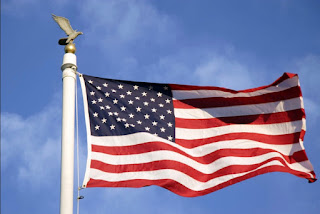America is often referred to as the “land of opportunity“, a place for an individual to find refuge and start anew with their lives, however, as reflected through Fitzgerald’s Great Gatsby and Wolff’s The Rich Brother, America’s inhabitants’ obsession with wealth and image, America should be referred to as the land of “status“ rather than opportunity.
Fitzgerald introduces Gatsby as an infamous man who throws lavish parties for many to enjoy, drives nice cars and lives in a mansion on the shore. Despite the many “little parties“, many of Gatsby’s guests are left guessing and assuming about Gatsby: “I don’t know… an Oxford man” (49). Seeing as Gatsby himself mingles with some of his guests, he has every opportunity to remedy these misconceptions and rumors being formed about his life. Later, FItzgerald reveals that Gatsby did not always live the extravagant life that his guests believe him to be living and he in fact went to a small Lutheran college of St. Olaf’s, meanwhile, “despising the janitor’s work” that enabled him to pay his way through university (99). Despite the many opportunities, Gatsby wanted to maintain his achieved status; having supposedly gone to Oxford sounds much better than St. Olaf’s because of the prestige that surrounds the name Oxford. Gatsby, the man who lives in a mansion with servants at his beck and call, never revealed how he had to pay for himself to be educated, “despising” the janitors work he had to do to attend the lesser St. Olaf’s.
Not only does Gatsby himself express his desires to obtain and in Gatsby’s case maintain status, but Gatsby’s party-going guests express their desire to obtain status by attending one of Gatsby’s extravagant parties; earlier Nick says that he was one of the few guests who had “actually been invited” to Gatsby’s. Typically, without receiving an invitation, it is common courtesy to not show up to the designated event unpronounced. Seeing as Nick was one of the hundreds that showed up who was “actually invited“, the actions of the hundreds of others who chose to just show up speaks numbers; there is something to be said about a person who can be found as a guest at one of the most wealthy and successful individual’s home. The guests desire to be associated with someone as successful and wealthy as Gatsby, hence their presence at Gatsby’s “little party”.
In Wolff’s story of The Rich Brother, we accompany two brothers who have virtually nothing in common other than genetics, one brother, Pete, is obsessed with his own, self-made status whereas Donald is more down to earth and not as motivated by money. Similarly to Gatsby’s guests, Pete wants to associate himself solely with individuals who have status themselves. This becomes apparent when Donald welcomes a hitchhiker into Pete's Mercedes, the hitchhiker, who Pete immediately associates the term “rug” with, receives a less than pleasant greeting and is told by Pete that there is “not that much” room. Pete, having driven up in an empty car in anticipation of his brother’s baggage is being completely dishonest to the hitchhiker simply because he doesn’t want to taint his status; a man who made “a lot of money” shouldn’t be socializing with someone as simple as a “rug” but rather people who make “a lot of money” should be socializing with others who are as wealthy and of the same status. Pete believes that because he makes more money than this hitchhiker, it warrants deliberate dishonesty as an effort to dissociate with the “rug”.
Reflected time and time again in Fitzgerald's great American novel The Great Gatsby through the infamous man Gatsby himself and through his desperate party guests as well as through Wolff’s character of Pete in The Rich Brother, we see the underlying motivation of Americans in their desires to seek and maintain status in our country. Both texts it is plain to see that there is a misconception with the two words “opportunity” and “status”, while someone may come to seek opportunity, they are quickly corrected to suit their fellow Americans seeking status.

Sarah,
ReplyDeleteI like your focus on status very much. These texts -- and all of American life, really -- feature social stratification and hierarchy. I wish your discussion of opportunity was more inter-woven in your analysis of status, though. As it is you say we mistake one for the other, but does everyone have the same opportunity for (high) status? Overall, though, your quotes are apt and you explain them well. Good job!